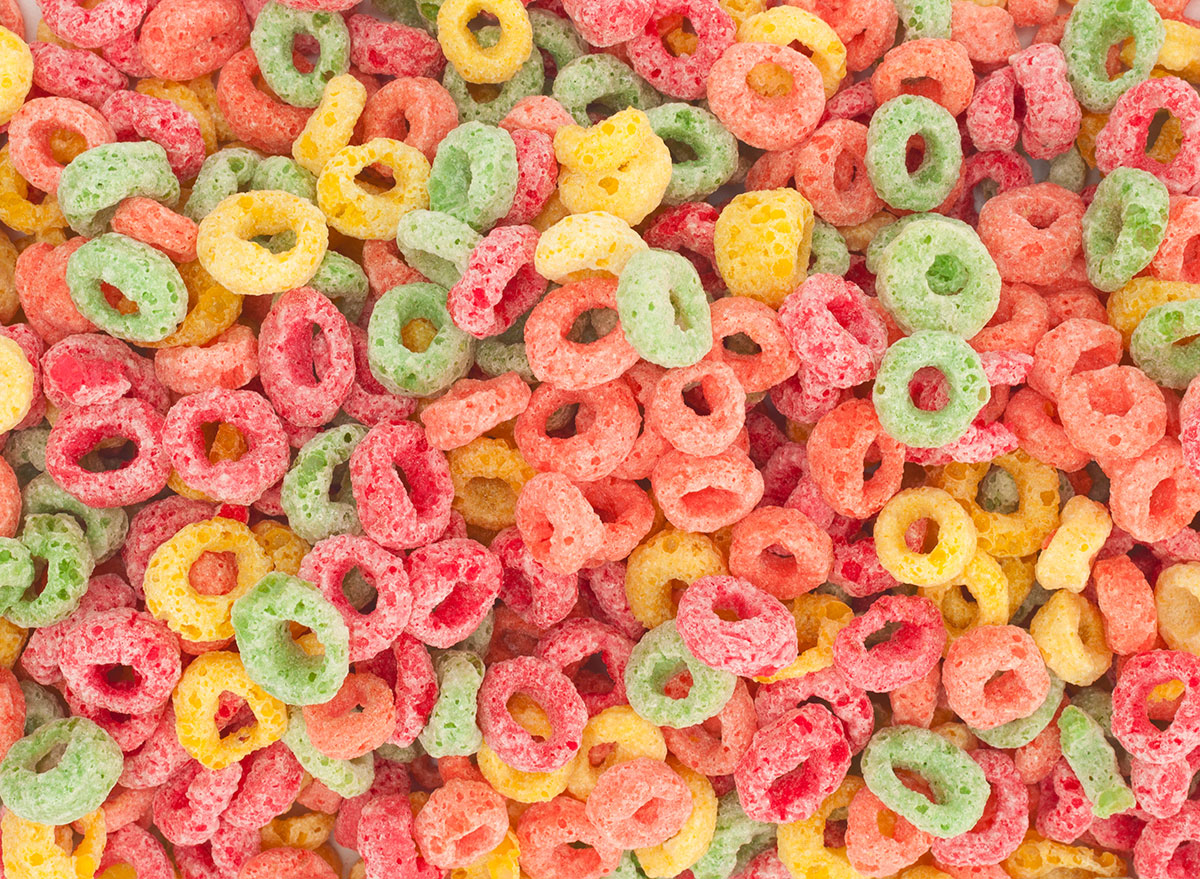One Major Side Effect of Eating Ultra-Processed Foods, Says New Study

While it’s well-known that ultra-processed foods are not ideal for your health, a new study shows that regularly consuming these types of foods and beverages may actually lead to a serious gastrointestinal condition.
An international group of researchers led by the Population Health Research Institute and McMaster University and Hamilton Health Sciences in Canada decided to investigate if eating patterns could play a role in being diagnosed with IBD, otherwise known as inflammatory bowel disease—a general term that refers to a group of chronic disorders of the digestive system, with the two most common disorders being ulcerative colitis and Crohn’s disease, according to the Centers for Disease Control and Prevention (CDC)—since data linking diet with the onset of IBD is “limited and conflicting.”
The team of researchers gathered more than 116,000 adults from around the globe (21 countries) between the ages of 35 to 70 from low-, middle-, and high-income areas. Participants were evaluated over a 13-year period where the volunteers were instructed to fill out a detailed food and nutrition questionnaire. All new IBD diagnoses were highlighted, which included a total of 467 cases (90 with Crohn’s disease, 377 with ulcerative colitis).

After taking other possible risk factors into consideration (such as age, weight, alcohol intake, and smoking status), researchers revealed that high consumption of ultra-processed foods was associated with an increased risk of IBD. Ultra-processed foods include processed meats, sugary breakfast cereals, soft drinks, fruit drinks, refined sweetened foods (like candy), salty snacks, ice cream, and commercially prepared pastries and biscuits being that these items contain high amounts of sugar, salt, and fat, along with food additives, artificial flavorings or colors while lacking in fiber and essential nutrients.
As for the statistics—consuming one to four servings of ultra-processed food each day was associated with a 67% increased risk of IBD, while five or more servings a day led to an 82% increase. Furthermore, the findings from this observational study also found that white meat, unprocessed red meat, dairy, and starches, as well as fruits, vegetables, and legumes, were not associated with developing IBD. These results led the study authors to believe that risk of chronic intestinal inflammation is more likely related to whether or not a food is processed rather than the food itself.
“While additional studies are necessary to identify what exactly is responsible, it makes sense that the combination of low fiber, low antioxidants, and high sugar is inflammatory to the gut and may cause digestive disorders,” says Lisa Young, PhD, RDN, adjunct professor of nutrition at NYU author of “Finally Full, Finally Slim.”
In fact, the Crohn’s & Colitis Foundation reports that even though there is not a standard recommended diet for those diagnosed with IBD, sugary foods, high-fat greasy foods, foods made from non-absorbable sugars (such as sugar alcohols found in sugar-free gum, candy, ice cream), and caffeinated drinks all fall under the list of “potential trigger foods.”
Since the research team concluded that even one daily serving of ultra-processed foods could wreak havoc on your gut microbiome, Young suggests implementing several smart—and simple—food swaps into your diet. For example, you can substitute sparkling water (topped with fresh lemon or mint) for soda, opt for roasted sweet potatoes over French fries, and choose a homemade fruit smoothie instead of ice cream.
Though it’s not necessary to permanently ban your favorite sugary and salty comfort foods. “While most of us will want to indulge in that occasional ice cream, for example, keep in mind that portion size matters,” continues Young. “Practice portion control by enjoying one scoop of ice cream instead of two or three scoops.”
For more healthy living news delivered straight to your inbox, sign up for our newsletter!